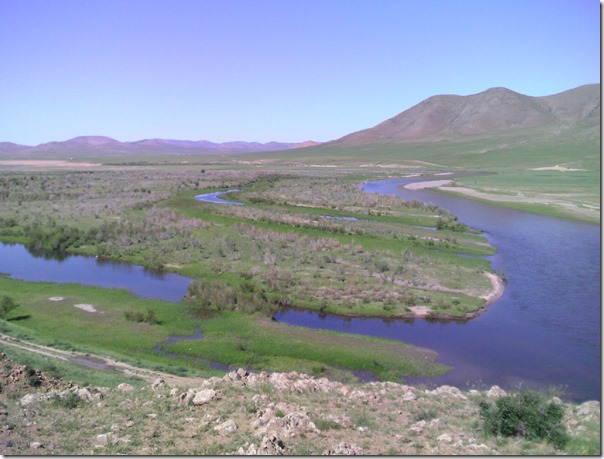Report on biodiversity, water scarcity, and transboundary river basin management in fluctuating climate.
Rivers without Boundaries Coalition continues documenting and analyzing transboundary basins of Dauria, hotspot of global biodiversity divided between China , Russia and Mongolia and not well known by the international community. New report is focusing on water resources management in Kherlen\Kelulun River transboundary basin to promote climate adaptation, ecosystem-based river basin management approach, strategic environmental assessment of development options related in water management in transboundary river basins of Dauria. Kherlen was selected as extreme example of discrepancy between development plans, ecosystem health requirements and cyclical availability of water resources. This is mainly due to Kherlen-Gobi water conveyance system being schemed and actively pushed for by Mongolia Government. This may seriously affect natural and social systems both in Mongolia and China. However, one of obvious triggers of such destruction will be Chinese investment in Mongolian coal sector. Report shows that even in comparison with adjacent Ulz and Khalkh transboundary basin, the Kherlen has more acute and immediate water management and ecosystem conservation problems, for it may simply stop flowing if planned projects are implemented. Recommendations presented in the report are relevant to integrated river basin management in other river basins. Report production was supported by UNECE Water Convention Secretariat and Whitley Fund for Nature. Document includes detailed illustrated report and a 10-page executive summary.
Full Report downloadable here
Executive Summary in Mongolian


